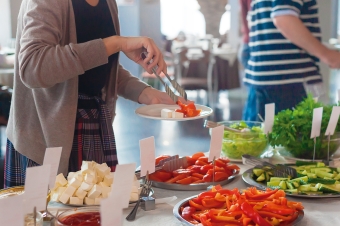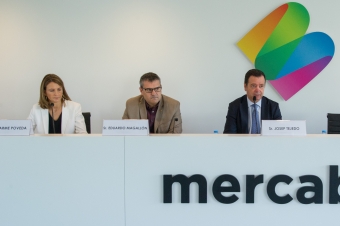Supplying food to cruise ships, a market to explore
On 27 September, the Mercabarna Trends Observatory presented a new study, which analyses the food supplied to passenger transport.
Today, Barcelona is one of the most visited cities in the world. One of the consequences of this leadership is the large numbers of people and modes of transport with origin or destination in the Catalan capital. Faced with this reality, and taking into account the implications that this may have on the food sector, the Mercabarna Trends Observatory presented the study "Business opportunities for the food supplies related to large flows of transport", prepared for the Barcelona Chamber of Commerce.
The conclusions of the analysis were revealed on 27 September, in a session which convened around sixty attendees who are interested in supplying the tourism sector, and in particular cruise ships. Starting with a scenario that can motivate new business opportunities, Mercabarna's CEO, Josep Tejedo, stressed that the "session was a good platform to identify options and business difficulties and encourage networking and the projection of the companies of the facilities". In addition, he announced the creation of a Working Group with the Food Unit companies and various players in the sector, with the aim of detecting where the niches in the market are.
In fact, the study shows that Barcelona's transport infrastructures are the centre of a high level of maritime, air and railway traffic of both people and goods. Despite the complexity of the sector, the work carried out highlights the need to analyse what opportunities there are or can be generated to supply food to this group.
Keeping up to date with the developments in the sector
This session forms part of the activities carried out by the Mercabarna Trends Observatory, which studies the emerging and future issues that may affect the business model of the companies based in the facilities. Over the past two years, this service has analysed issues such as the e-commerce of fresh food, ecological products and the retail trade run by foreigners.














